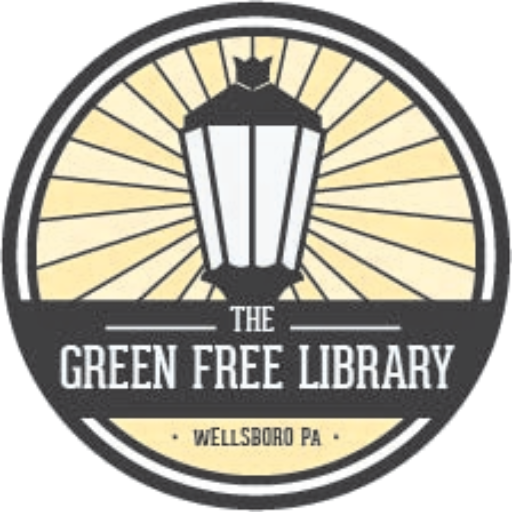Programs, PA Forward, Seed Library, Oh My!
Story Hour
The weekly reading program with Miss Mia is free of charge and open to children from 15 months to 5-year-old. It runs during the school year from September through May on Wednesday mornings, starting at 10:30 am. Miss Mia will also be posting online story hours once a month on our YouTube channel.
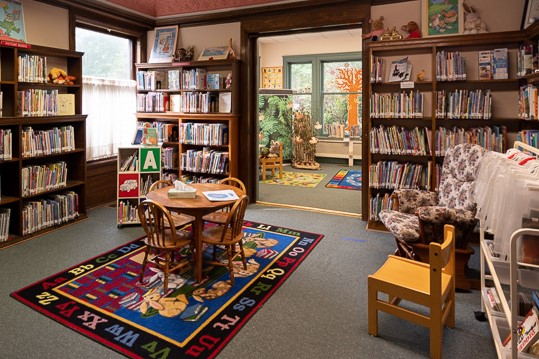
Youth Collections
- The Children’s Room houses books for preschoolers through second graders. Some DVDs, multimedia kits, and music are also available. Puppets, activity centers, and other hands-on materials are also found in this location. as well as a computer with pre-installed educational software for preschool children.
- The Robinson Room has a small teen area with bean bag chair and white board.
- Nonfiction and fiction books for juveniles and young adults are in separate locations in the Robinson Room.
- DVDs and audio books for youth are available in the Main Room of the library.
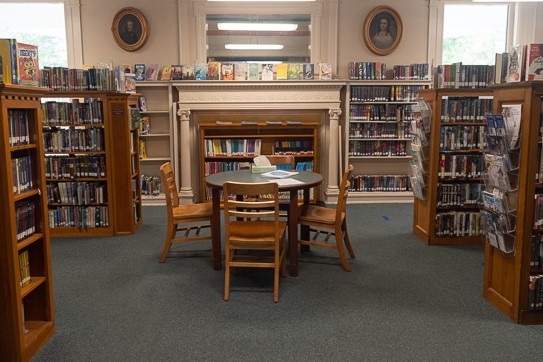
WHAT IS PA FORWARD?
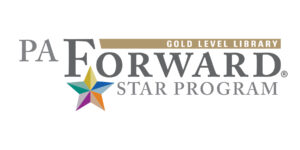
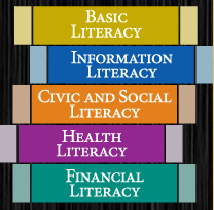 PA Forward is an initiative of the PA State Library Association (PaLA) to strengthen the libraries of the state working through education, advocacy, and leadership.
PA Forward is an initiative of the PA State Library Association (PaLA) to strengthen the libraries of the state working through education, advocacy, and leadership.
PA libraries have become the communities’ information and technology resource centers for their local citizens. Libraries have gone beyond serving real life needs to becoming the key to elevating and powering the progress of the types of knowledge essential to success.
The Green Free Library has been a Gold Star recipient since the 2016 pilot program for our dedication in providing education, programs, and information to our community. The program celebrates creativity, new partnerships, and developing a broader community support in our area. Our Star must be renewed annually by providing information on our programs and resources.
The Five Literacies of PA Forward include:
Basic literacy: developing competency in reading, writing, math, job application assistance, life skill development, STEM (Science Technology, Engineering, and Mathematics) literacy, and building on basic skills and concepts.
Information literacy: ability to connect and understand knowledge and communication through comprehensive and innovative formats. This literacy also includes the knowledge and skills of distinguishing between credible and non-credible sources and information.
Civic and Social Literacy: Remaining respectful of others of varying opinions, understanding the importance of the community, and engaging with others in a participatory manner, by invoking societal change.
Health Literacy: the ability to make informed decisions about one’s health: physically, mentally, and spiritually. Helping caregivers to understand the health information of a loved one.
Financial Literacy: the knowledge and understanding of informed fiscal and economic decisions for personal and business interests, including spending, budgeting, and saving.
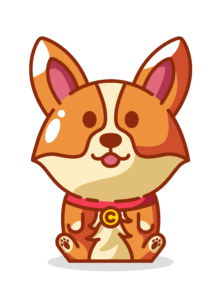 Chester wants to introduce our new SEED LIBRARY!
Chester wants to introduce our new SEED LIBRARY!
What is a Seed Library?
A seed library is a place where people of the community can come and get free seeds. There are public libraries that have seed libraries in their facilities, so patrons and visitors learn how to garden, grow some of their own food, and share with others by giving back seeds to the seed library for others to try. This is a way to create varieties of seeds by developing a network of seed growers.
This program is free to the community to help increase the ability to grow wholesome foods and to offer seeds and education on how to have productive plants.
The Green Free Library Seed Library will operate on an honor system. You become a member when you withdraw seeds to plant. There will be programs at the library to learn the basic seed saving techniques and how to return the seeds to the library. This will help keep the library stocked for others to take and plant. If you are unable to save the seeds, please consider donating a packet or two to help grow our library stock.
We are partnering with the Penn State Extension Master Gardeners of Tioga County, who are providing programs in our Main Room. Check our Events page for the monthly topics.
Choosing Seeds
The seeds that fill our library will be from people who have open pollinated varieties from their personal gardens or from freshly bought seed packets to get started (please remember to select seeds/plants that are not invasive to our area). When you are saving seeds, please try to match the seed with the seed category of easy, medium, and advanced growing.
Three Ways to Save Seeds
Dry Seed Processing Seeds that grow in a pod or are outside plants. (eg. beans, carrots)
Allow seeds to dry on the plant and then collect the pod.
Wet Seed Processing Seeds that are wet such as watermelon and squash. Rinse seeds off and let air dry completely.
Fermentation Seed Processing Seeds with a gel type coating, for example tomato, cucumber, and some melons. Mix the seeds with a little water in a small plastic container with a lid, fermenting for 4-6 days. When mold has formed on top of the water and when the seeds sink, the process is complete. Add water, rinse, and remove the mold and pulp. Bad seeds will float to the top. Drain water from seeds and lay out on a plate or screen and dry thoroughly.
Climate, zone areas, and time to plant: starting seeds is according to the climate, zone area, and the time to plant. By using the NOAA website, it gives the average time the first or the last frost will be in your area. The Zone areas will inform a gardener when to plant and transplant seeds and plants.
For more information or questions about an issue, ask a Master Gardener in Tioga County 570.724.9120/tiogaamg@psu.edu. Contact the library to learn more about our Seed Library and/or upcoming gardening programs.
